

Sign up to our Newsletter
How to get into vanderbilt medical school.

Reviewed by:
Akhil Katakam
Third-Year Medical Student, Lewis Katz School of Medicine at Temple University
Reviewed: 10/10/23
Is Vanderbilt the right medical school for you? Let’s find out! Follow along with our complete guide to understand how to get into Vanderbilt University School of Medicine.
The Vanderbilt University School of Medicine celebrates cultural diversity, thinking, learning, and leading. Vanderbilt is ranked 5th in U.S. News and World Report’s ranking for Best Med Schools: Research and maintains high rankings in several other categories.
Located in Nashville, Tennessee, the school is spread across a timeless urban campus in the city’s center. If you’re looking to enjoy southern food and a world-renowned music scene, Vanderbilt medical school might be right for you.
We’ll break down everything you need to know about how to get into Vanderbilt University School of Medicine. From admissions requirements to tuition costs, we’ve got you covered. Let’s get started!
Get The Ultimate Guide on Writing an Unforgettable Personal Statement

Vanderbilt Medical School Programs
Vanderbilt offers various medical education programs to ensure each student has a program tailored to their needs. Vanderbilt’s MD programs include the following:
- Doctor of Medicine
- Medical Scientist Training Program (MD/PhD)
- Medical Innovators Development Program
- Oral and Maxillofacial Surgery MD Program
- Vanderbilt Program for Interprofessional Learning
Vanderbilt also offers the following MD dual degree programs:
- MD/MS in Biomedical Informatics
- MD/MA in Medicine, Health, and Society
These programs only represent MD and dual MD programs offered at Vanderbilt. For a full list of Vanderbilt’s programs, check out their website.
Vanderbilt Medical School Admissions Statistics
Although Vanderbilt isn’t an Ivy League school, it’s consistently compared to the eight schools in the Ivy League and presents impressive statistics.

That means Vanderbilt is challenging to get into and maintains a very high academic standard. The Vanderbilt med admissions statistics are as follows.
Vanderbilt Medical School Acceptance Rate
In the most recent application cycle, 95 of 7268 applicants matriculated into the school, making the enrollment rate of Vanderbilt medical school approximately 1.3%. The acceptance rate is slightly higher, at 4.5%.
Vanderbilt University School of Medicine GPA
Vanderbilt doesn't have a minimum GPA requirement , although the typical GPA of an entering student at Vanderbilt medical school ranges from 3.71 to 4.0. The median GPA of the 2027 class was 3.94.
Vanderbilt University School of Medicine MCAT
The MCAT is required as part of your application to Vanderbilt medical school. There is no minimum MCAT requirement. However, the median MCAT score of the 2023 entering class was 521. We recommend taking the MCAT early enough to retake it if necessary while giving yourself plenty of time to prepare .
Vanderbilt Medical School Requirements
These are the Vanderbilt med school requirements your application must meet to be considered. Your application should exceed the minimum requirements to be considered competitive. If you’re struggling, consider seeking an admissions counselor’s guidance to strengthen your profile.
AMCAS Application (with Transcripts)
You must submit your AMCAS application and transcripts by the mid-November deadline. Vanderbilt recommends sending your application early, as it can improve your chances of admission.
You must take the MCAT on or before a late-September deadline and submit your score. There’s no minimum MCAT score . However, you should aim for a score of around 521.
Prerequisite Courses (Recommended)
The following courses aren’t Vanderbilt School of Medicine requirements but are strongly recommended to demonstrate your knowledge of these core competencies:
- Chemistry/Biochemistry
- Mathematics/Statistics and Physics
- Social Sciences and Communication (English)
For more information on what Vanderbilt medical school is looking for in terms of courses and demonstrated understanding, check out the school’s website .
Letters of Evaluation
To submit your letters of evaluation, you must use the AMCAS letter submission service and select Vanderbilt medical school. Vanderbilt accepts three to five letters in any of the following formats:
- Committee Letters
- Pre-Health Advisor Letters
- Individual Letters
Vanderbilt emphasizes quality over quantity, suggesting most students only send three strong letters.
Additional Requirements
Vanderbilt medical school is competitive. To ensure your application is as strong as possible, ensure you demonstrate each of the following:
- Academic accomplishment
- Personal qualities
- Leadership skills
- Educational background
Consider these factors when crafting your primary application. After the first round of screening, you must submit a secondary application with the $95 application fee. If your secondary application is approved, you’ll be invited to interview.
Vanderbilt Medical School Secondary Essays
Here are the most recent Vanderbilt medical school secondary application essay prompts and how to answer them.
“ Please reflect on the upbringing, background, and experiences in your life that have shaped who you are as a person and will help define the person you want to be in the future. In other words, what makes you who you are? (800 words)”
With broad, open-ended questions like this one, it can be challenging to get started. We recommend brainstorming moments or pieces of your history you feel have shaped you before writing. Consider where you’re from, a challenge you’ve faced, or even a job you had.
Ultimately the experience isn’t the important part: it’s what you learned that matters. Vanderbilt is interested in getting to know you, but that doesn’t mean you should list everything that’s ever happened to you. Choose an experience that exhibits a key quality you have and would give a stranger an idea of what’s important to you.
Even if your story is about a time you failed, your essay should demonstrate your ability to get back up, reflect, and grow.
“Tell us about a time when you interacted with someone who is different from you. What did you learn? What would you do differently? (600 words)”
This is an excellent question for future medical students because doctors must interact with many patients. The important thing to insert here is an actual life experience in which you had to overcome your differences with another person.
Similar to the first prompt, how you overcame the differences and what you took away from the experience says the most about you. For example, if you had a coworker who disagreed with you, think about how you came to an agreement.
If the interaction ended poorly, what did you learn and put into practice the next time something similar came up? How did you examine your behavior to ensure you were being fair? This is a great time to demonstrate teamwork, growth, self-reflection, and listening skills.
“Everyone needs help at various times in their lives. Describe a time you asked for help and what you gained from that experience that has influenced your approach to asking for help. (600 words)”
Knowing when to ask for help is a valuable skill in the medical field. Don’t pretend you’ve never needed help or have always been a one-person show. What will impress the admissions committee is a real answer that demonstrates your ability to put away your pride to benefit the greater good.
For example, maybe there was a time you went to a friend or a professor for help when you were really struggling with a project. Or maybe you had a difficult time with mental health and needed help from a therapist. Show how you learned that asking for help when you need it, although it can be a real challenge, is absolutely necessary.
Optional Prompt #1
“ If you have completed your undergraduate education, please comment on what you have done or have been doing since graduation. (200 words)”
Optional prompts are just that: optional. Don’t answer this prompt if it doesn’t apply to you. If it does, briefly explain any gaps on your resume or additional opportunities you’ve pursued since graduating.
Optional Prompt #2
“If applicable, please describe how the COVID-19 outbreak affected your pathway to medical school. You may discuss any academic, personal, financial, or professional alterations to your plans. NOTE: Disclosing certain hardships or obstacles that have been faced during this time will not negatively affect an application. (200 words)”
Again, this prompt is optional. This would be the time to explain how the pandemic affected your current application. If you choose to answer this prompt, only respond with specific COVID-19-related hardships; don’t include other unrelated challenges you’ve faced.
Optional Prompt #3
"How did you first become interested in Vanderbilt University School of Medicine? (200 words)”
There’s a reason you put Vanderbilt on your list of top choices. Now’s the time to share why! What first sparked your interest in this school? What led you to learn more about it? Keep your answer brief and to the point.
Vanderbilt Medical School Interview
Vanderbilt interviews are currently conducted virtually via Zoom and are only offered to a select group of applicants. However, Vanderbilt hasn’t released whether this interview format will continue this cycle.
Each candidate will be invited to a morning or afternoon interview session via email at least three days before their scheduled interview time. If you’re wondering how to prepare for the Vanderbilt interview, check out our guide on how to ace your video interview .
Interviewees will be invited via email to join an optional “Deep Dive with Vandy” session. This is a great opportunity to familiarize yourself with the school and speak with experienced staff.
Vanderbilt Medical School Tuition
Full-time tuition at Vanderbilt medical school is $66,828 . The table below includes costs at Vanderbilt medical school you can expect to pay across your four-year MD degree.
Source : Vanderbilt University School of Medicine
Vanderbilt University School of Medicine Application Timeline
Here is the application timeline you need to follow if you’re applying to med school at Vanderbilt. The table below includes all the important dates and deadlines you’ll need to consider before applying:
Source : AAMC | Vanderbilt University
Most of these date ranges are final deadlines; you should begin working on/submitting your application as early as possible.
Tips for Getting Into Vanderbilt Medical School
Although meeting all Vanderbilt med school requirements is a great start, here are some top tips to help you put your best foot forward!
Participate in Research Projects
Vanderbilt is one of the nation’s top medical schools for research and seeks students who will appreciate and use the school’s resources and opportunities. According to Vanderbilt , “Experience in research and evidence of a concern for others are positive factors for selection.”
Solid research experience (and publications) in your interest areas can help you stand out from other applicants and show you’re an excellent fit for Vanderbilt. According to recent data , matriculants applied with 191,000+ research hours collectively (compared to 73,000+ community service hours).
While community service is also important, the cumulative amount of research the incoming class participated in shows how important it is to Vanderbilt!
Aim for a Higher GPA and MCAT Scores
Vanderbilt has no score or GPA cutoffs, but they’re still one of the most important selection factors. The first thing the admissions committee looks at is your record of academic accomplishment.
While there are no magic GPAs or MCAT scores to guarantee your acceptance, Vanderbilt states that the “intense competition tends to eliminate applicants with low GPAs and/or MCAT scores.” Be mindful of your academic standing – a well-crafted application can only offset lower scores so much.
FAQs: How To Get Into Vanderbilt Medical School
Here are our answers to some of the most frequently asked questions about how to get into Vanderbilt medical school.
1. What GPA Do You Need to Get Into Vanderbilt Medical School?
Vanderbilt doesn’t have a minimum GPA requirement; however, the median GPA of incoming students is 3.94. Vanderbilt is a competitive school, so you should aim to raise your GPA as high as possible before applying.
2. How Hard Is It to Get Into Vanderbilt Medical School??
Vanderbilt is a competitive school with an acceptance rate of only 4.5%. It may be hard to get into the school as it’s highly selective, but it’s not impossible.
3. Is Vanderbilt A Good Medical School?
Vanderbilt is an excellent medical school with a great national reputation. It’s currently ranked 5th for Best Med Schools: Research .
4. What MCAT Score Do I Need for Vanderbilt?
TThe median MCAT score of Vanderbilt medical school students is 521. Although there is no minimum MCAT score requirement, an MCAT score of around 521 or higher can boost your profile.
5. Is Vanderbilt a Prestigious Medical School?
Yes, Vanderbilt’s prestige attracts thousands of applicants annually.
6. How Is Vanderbilt Medical School Ranked?
The Vanderbilt medical school ranking 5th in Best Med Schools for Research shows the school’s prestige.
7. What Does Vanderbilt Medical School Look for in Applicants?
Vanderbilt seeks students “who have demonstrated academic excellence and leadership qualities, with broad extracurricular experience.” Research experience and “evidence of a concern for others” are also positive selection factors.
8. What is the Lowest MCAT for Vanderbilt?
According to the MSAR, the 10th percentile MCAT score of matriculants was 514. Vanderbilt’s average MCAT score range is 518 to 524.
Getting Into Vanderbilt Medical School With Inspira Advantage
You can get into the Vanderbilt School of Medicine by following our guide. VU is a competitive school, which is why enlisting the help of an MCAT tutor or admissions counselor can help fortify your application. If you’re looking for expert guidance, we’re here to help. Good luck!
Schedule A Free Consultation
You may also like.

Clinical Experience for Medical School: What Exactly Do You Need?
.jpg)
Citric Acid Cycle on the MCAT: What you Need to Know


- Secondary Essay Prompts
Secondary Essay Prompts – Vanderbilt University School of Medicine
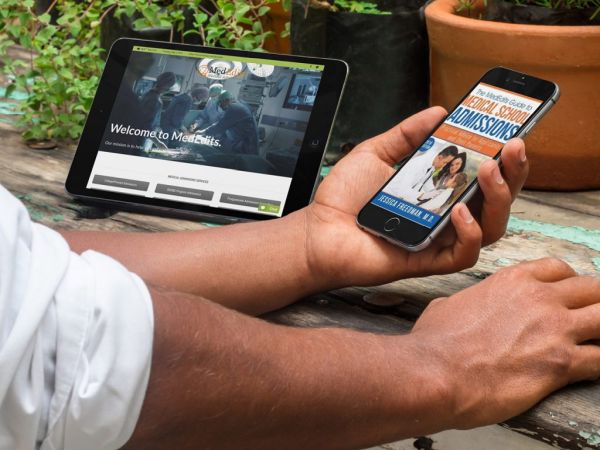
Secondary Essay Prompts for the Vanderbilt University School of Medicine
Below are the secondary essay prompts for the Vanderbilt University School of Medicine in Nashville, TN.
2019 – 2020
- Write a brief autobiography. As completely and precisely as possible, give a picture of yourself, your family, and events you consider important to you. In doing so, identify the values that are of greatest importance to you. If you have completed your undergraduate education, please comment on what you have done or have been doing since graduation. (1200 words)
- Please discuss a challenging situation or obstacle you have faced in the past. Why was it challenging? How did you handle it? Knowing what you know now, would you do anything differently? What did you learn? (500 words)
- An additional section for MD-PhD applicants to list pubs, presentations, and abstracts.
2016 – 2017
- Autobiography: Write a brief autobiography. As completely and precisely as possible, give a picture of yourself, your family, and events you consider important to you. In doing so, identify the values that are of greatest importance to you. If you have completed your undergraduate education, please comment on what you have done or have been doing since graduation. (1200 words)
- Challenge: Please discuss a challenging situation or obstacle you have faced in the past. Why was it challenging? How did you handle it? Knowing what you know now, would you do anything differently? What did you learn? (500 words)
Secondary essay webcast with Dr. Jessica Freedman, founder and president of MedEdits Medical Admissions. Read more about Dr. Freedman.

Vanderbilt University School of Medicine
Topics covered in this presentation:
- When should I submit my secondary essays?
- Pay attention to the word/character limits.
- Can I recycle secondary essay prompts for multiple schools?
- Identify topics that you left out of your primary application.
- And, much more.
Below are the secondary essay prompts for the Vanderbilt University School of Medicine.
2017 – 2018.
- The Vanderbilt University School of Medicine strives to ensure that its students become respectful physicians who embrace all dimensions of caring for the whole person. Please describe how your personal characteristics or life experiences will contribute to the Vanderbilt University School of Medicine community and bring educational benefits to our student body. (1000 characters)
- Is there any further information that you would like the Committee on Admissions to be aware of when reviewing your file that you were not able to notate in another section of this or the AMCAS Application? (1000 characters)
- Why have you chosen to apply to the Vanderbilt University School of Medicine and how do you think your education at Vanderbilt University School of Medicine will prepare you to become a physician for the future? (1 page, formatted at your discretion, upload as PDF)
Vanderbilt University School of Medicine Admissions Requirements
Learn more about this school:
Secondary Essay Prompts for Other Schools
Do you want to see secondary essay prompts for other medical schools?
Select a school below:
Secondary Essay Prompts By School
*Data collected from MSAR 2022-2023, 2022 Osteopathic Medical College Information Book, and institution website.
Disclaimer: The information on this page was shared by students and/or can be found on each medical school’s website. MedEdits does not guarantee it’s accuracy or authenticity.
RELATED ARTICLES MORE FROM AUTHOR

Secondary Essay Prompts – Baylor College of Medicine

Secondary Essay Prompts – University of California, San Francisco, School of Medicine

Secondary Essay Prompts – University of Miami Leonard M. Miller School of Medicine

Secondary Essay Prompts – Columbia University Vagelos College of Physicians and Surgeons

Secondary Essay Prompts – Mayo Medical School, Rochester, MN
Leave a reply cancel reply.
Save my name, email, and website in this browser for the next time I comment.
- Website Disclaimer
- Terms and Conditions
- MedEdits Privacy Policy
Vanderbilt University School of Medicine Secondary Questions
Here are the secondary prompts for Vanderbilt University School of Medicine.

1. Please reflect on the upbringing, background, and experiences in your life that have shaped who you are as a person and will help define the person you want to be in the future. In other words, what makes you who you are? (800 words)
2. Tell us about a time when you interacted with someone who is different than you. What did you learn? What would you do differently? (600 words)
3. Everyone needs help at various times in their lives. Describe a time you asked for help and what you gained from that experience that has influenced your approach to asking for help. (600 words)
4. (Optional) : If you have completed your undergraduate education, please comment on what you have done or have been doing since graduation. (200 words)
5. (Optional): If applicable, please describe how the COVID-19 outbreak affected your pathway to medical school. You may discuss any academic, personal, financial, or professional alterations to your plans. NOTE: Disclosing certain hardships or obstacles that have been faced during this time will not negatively affect an application. (200 words)
Please discuss a challenging situation or obstacle you have faced in the past. Why was it challenging? How did you handle it? Knowing what you know now, would you do anything differently? What did you learn? (500 words)
Write a brief autobiography. As completely and precisely as possible, give a picture of yourself, your family, and events you consider important to you. In doing so, identify the values that are of greatest importance to you. If you have completed your undergraduate education, please comment on what you have done or have been doing since graduation. (1200 words)
An additional section for MD-PhD applicants to list pubs, presentations, and abstracts.
Autobiography
2017 – 2018
Autobiography: Write a brief autobiography. As completely and precisely as possible, give a picture of yourself, your family, and events you consider important to you. In doing so, identify the values that are of greatest importance to you. If you have completed your undergraduate education, please comment on what you have done or have been doing since graduation. (1200 words)
Challenge: Please discuss a challenging situation or obstacle you have faced in the past. Why was it challenging? How did you handle it? Knowing what you know now, would you do anything differently? What did you learn? (500 words)
Related posts:
- Creighton University School of Medicine Secondary Questions
- Emory University School of Medicine Secondary Questions
- Warren Alpert Medical School of Brown University Secondary Questions
- Indiana University School of Medicine Secondary Questions
Related Articles
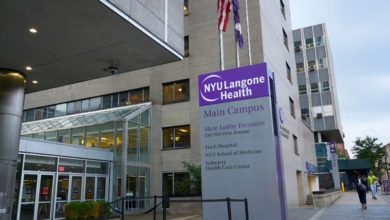
New York University School of Medicine Secondary Questions

East Tennessee State James H. Quillen College of Medicine Secondary Questions

Baylor College of Medicine Secondary Questions
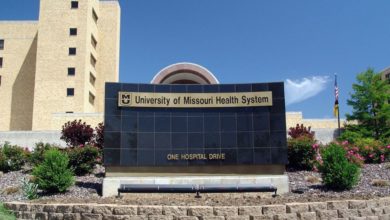
University of Missouri-Columbia School of Medicine Secondary Questions
MD Admissions
Applying to medical school: the basics.
If you’re passionate about a medical calling, medical school could be right for you. But how exactly do you get there?
We’re here to make the application process as transparent and simple as possible. Here’s a step-by-step walkthrough of questions and advice for wherever you are in the process.
During Your Middle School & High School Years
While good grades in middle and high school will certainly benefit your college applications, medical schools won’t specifically ask for your pre-college transcripts. Don’t be afraid to take risks and explore.
- Try out as many academic directions as you can, and follow what energizes you.
- Pursue your passions outside of school, through extracurriculars, work experience, volunteering, and college classes.
- If you know anyone who works in the medical field— a nurse, a pharmacist, or a physician —ask them if they would let you shadow at their work for a day.

During Your College Years
College is the perfect time to explore a potential career in medicine— as well as any other areas that interest you.
Many of the top medical schools look for similar qualities in applicants: strong academics (especially GPA and MCAT), research experience (lab-based or otherwise), and leadership experience. If you keep these three things in mind during your time as an undergraduate, you will be setting yourself up for success when you apply to medical school.
Selecting a College
We encourage you to find a college that is a good fit for you, rather than looking for a college name you think will look good on an application. In general, our admissions committee focuses less on where you went to college and more on what you did while you were there.
Each year, we have 50 to 60 different undergraduate institutions represented in our incoming class of 96 students— some from smaller private colleges, others from large public universities, and still others who spent a year or two taking community college courses before transferring to a four-year institution.
With that in mind, do take some time to learn about the pre-health advising options at the college you apply to. We recommend that you attend a college with an advisor who is active in the National Association of Advisors for the Health Professions (NAAHP), the professional association for pre-health advisors. When you’re learning about your college options, you may want to ask:
- What is the student-to-advisor ratio in pre-health advising at this college?
- Does the pre-health advisor only meet with students with a certain GPA range? Or only during certain timeframes?
- Does this college write an advisor letter of recommendation or a committee letter of recommendation for their pre-med students?
- If I don’t get into medical school the first time I apply, can I still receive advice from the advisor after I graduate?
- What advising opportunities would I have if I decide I no longer want to pursue medical school?
Choosing a Major
You don’t need a specific major to get into medical school.
Your college years are the time to explore not only a potential career in medicine but also other areas that you are interested in. Our admissions committee values diverse backgrounds and perspectives, so we’ll look at your application holistically. Your application won’t be passed over because you do or do not have a specific major.
To sum it up: your particular major is less important than the overall passion and dedication you display during college. We want to know you aren’t afraid to follow your passions, even if that means taking a medical interest into an unusual setting.
Registering for Classes
During college, make sure to plan ahead so you have time to take the STEM courses you need to take for the MCAT and any required prerequisites for the medical schools on your list.
We do not have specific prerequisites at Vanderbilt , but you’d be hard pressed to find a VUSM student who didn’t take at least two semesters of biology, chemistry, organic chemistry, and physics. The MCAT also includes biochemistry, psychology and sociology material, so taking courses in those areas may boost your MCAT performance.
Finally, try out courses that will help you understand whether medical school coursework will energize and challenge you. Medical school curriculum demands a lot of time and energy, so if you’re feeling unmotivated in your STEM classes now, it could be a sign that medical school isn’t the right path for you.
Connecting with Pre-Med Advising Early
Get connected with your pre-med advisor or pre-health office early in your college career. Besides helping you select the correct classes to meet medical school prerequisites, they’ll also give you advice on preparing a strong application. Your advisor will be involved with writing your advisor or committee recommendation letter when you apply to medical school.
If your college does not have any pre-health advising options, check out the free pre-med advising resources from the NAAHP . Volunteer NAAHP members are available to provide advising for students who have no other access to advising.
Leading Outside the Classroom
Besides strong academics and research experience, our admissions committee values leadership experience and dedicated involvement. Here are just a few of the ways you can follow your medical and non-medical interests outside of your coursework:
- Diving into a guided research project
- Volunteering with local nonprofit organizations
- Signing up to interpret in medical settings, if you speak a language other than English
- Shadowing medical providers near you
- Taking on leadership roles in extracurricular organizations
- Working part-time in a medically related role, like as a CNA, EMT, or research assistant
- Starting something new— whether you’re launching a non-profit, exploring a foreign language, or coding a new app, don’t be afraid to take risks and forge your own path
Starting the Application Process
Some students choose to take one or more gap years after college before applying to medical school, while others apply during the summer before their senior year. Taking time off from school to pursue a fellowship, continue research, or gain work experience can enhance your unique medical perspective, but it’s not required.
Whenever you choose to apply, here are the crucial components to keep in mind:
Taking the MCAT
The Medical College Admission Test (MCAT) is the standardized multiple-choice exam all medical school applicants take. It tests your problem-solving skills, critical thinking ability, and knowledge of natural, behavioral, and social science concepts. Most applicants take the MCAT 6-8 months before beginning the application process, but many med schools accept MCAT scores that are up to 3 years old.
Writing Your Personal Statement
This roughly 500-word essay is the single most important piece of writing you’ll submit during the application process, and it revolves around a simple question: Why do you want to go to medical school?
When you’re choosing what to write about, consider how you can show the admission committee who you are beyond your test scores, grades, and resume. What sets your perspective apart? What unique experiences and interests will you bring into your medical training?
During the drafting process, ask trusted advisers and close friends if they’d be willing to give you feedback on your essay. Remember, you want to submit a statement that accurately showcases your unique perspective and motivations for attending medical school.
Completing the AMCAS Application
The American Medical College Application Service is the common application you’ll use to apply to most U.S. medical schools. This means you only have to submit your transcripts, test scores, and personal statement once.
The AMCAS application opens in May, and individual medical schools set their own application deadlines , generally ranging from October to December. Still, you’ll want to submit your AMCAS app early in the summer so you can hear back from schools as soon as possible.
Since many medical schools admit students through a rolling admissions process, successful VUSM applicants generally take their MCAT and fill out their AMCAS early in the process.
Completing Your Secondary Applications
Once your AMCAS application has been verified, admissions committees will send you a secondary application if they think you might be a good candidate for their school. Second applications typically include 2 to 3 short essay questions about your interest in that particular medical school, and it’s a good idea to submit these essays within just a few weeks of receiving them.
Attending Interviews
Once medical schools begin receiving secondary applications back, they’ll invite groups of applicants to interview. Receiving an interview doesn’t guarantee you admission, but it does mean the school wants to get to know you better, as an applicant and as a person. Interviews also offer you a great opportunity to see if the school’s location, curriculum, and culture fit you well.
Schools typically send out waves of interview invites between August and January, but the dates vary. Once you complete the interviewing process for a particular school, you’ll usually receive an admissions decision within a few weeks.
For a more detailed picture of how these elements play out over the year, check out our VUSM-specific admissions timeline .
What ultimately makes a successful applicant?
There’s no one-and-done formula that will get you into medical school.
Building a strong application starts with significant leadership and research, along with community engagement and medical exposure. But well-rounded VUSM applicants also bring something unique from their background: maybe they were career changers, varsity athletes, prominent student leaders in their universities, published researchers, or individuals who overcame significant hurdles to get to this point in their career. Finally, they had strong letters of support advocating for their acceptance and future performance in medical school.
Additional resources
Do you have a question we haven’t answered here? Reach out to our current med students . These students just completed this process themselves, and they’d love to answer any questions you have about VUSM or medical school in general. Need more resources? Visit AAMC’s Preparing for Medical School and Timeline for Application and Admission to Medical School resources.
- About the School
- Quick Facts
- Administration
- Basic Sciences
- A-Z Directory
- Contact Information
- Campus Maps & Parking
- Current Students
- Basic Sciences Faculty Affairs
- Clinical Faculty Affairs
- Eskind Biomedical Library
- People Finder

How to Get Into Vanderbilt Medical School: Tips From Admissions Experts
- Cracking Med School Admissions Team
Our Cracking Med School Admissions team often get asked, “ How to get into Vanderbilt medical school? ” In order to get accepted, you have to convey your passion to advance healthcare in an innovative way. You have to emphasize leadership and a desire to improve healthcare for our entire society.
This page serves as a high-yield resource for Vanderbilt Medical School. The information from this page is a GOLDEN resource. Vanderbilt University School of Medicine is located in Nashville, Tennessee. We’ve compiled it from Vanderbilt Medical School acceptance rate data, the Vanderbilt Med School website, and most importantly, from Vanderbilt med students themselves! You will have facts such as Vanderbilt Medical School admissions statistics and tips for getting accepted to Vanderbilt School of Medicine.
The Vanderbilt University School of Medicine secondary application is among one of the hardest secondaries to complete. It notoriously has the Vanderbilt Autobiography. Read all the Vanderbilt secondary prompts below in the “Applications” section, and read ALL our Vanderbilt secondary essays tips here .
Whether you’re comparing medical schools that you have been accepted to, preparing for an interview, or wanting to learn more about Vanderbilt Med School, keep reading! Contact Drs. Rachel Rizal and Rishi Mediratta if you have questions!
Why Choose Vanderbilt Medical School?
The most common reasons we’ve heard from students:
- Supportive school
- Flexible curriculum with the ability to do other interests at your own pace
- Ample time to explore your passions in healthcare
- Only one year of pre-clinical curriculum with an extra year to pursue other passions in healthcare – whether it’s working for a medical device company or creating a new public health program or conducting research
- Great clinical training
- Solid match list for residency
- Close knit community
Table of Contents
Applications.
The Vanderbilt School of Medicine secondary application is very long. Not only are there several essays that are tough to answer because they require a lot of time and reflection, but also the essays are long in length. We encourage medical school applicants to answer the optional essays.
In the 2021 – 2022 cycle, Vanderbilt School of Medicine Admissions changed the secondary essay questions. There is essentially still the “Vanderbilt secondary autobiography ,” but they added other questions too. Look at our Cracking Med School Admissions Vanderbilt School of Medicine Secondary Application Prompts since 2014.

- First Name *
- Last Name *
- Year Applying to Med School *
- Best Email *
- Comments This field is for validation purposes and should be left unchanged.
Vanderbilt Medical School Acceptance Rate
Vanderbilt university medical school admissions statistics:.
- Vanderbilt Med School Average GPA: 3.84
- Vanderbilt Med School Average MCAT: 520 (130 chemical & physical / 129 critical analysis / 130 biological & biochemical / 131 psychological, social)
How did Vanderbilt University Medical School Students Do on Their USMLE Step Exams?
- Average Vanderbilt University Medical School USMLE Step 1 Score: 247
- Average Vanderbilt University Medical School USMLE Step 2 Score: 250
Source: U.S. News Graduate School Rankings 2021
Your medical school application Coaches, Mentors, & Cheerleaders
We Personally Advise Every Student We Work With

Rachel Rizal, M.D.
Changing the trajectory of people’s lives.
Undergraduate Princeton University
Medical School Stanford School of Medicine
Residency Harvard, Emergency Medicine
Awards & Scholarships Fulbright Scholar USA Today Academic First Team Tylenol Scholarship

Rishi Mediratta, M.D., M.Sc., M.A.
Advising students to attend their dream schools.
Undergraduate Johns Hopkins University
Residency Stanford, Pediatrics
Awards & Scholarships Marshall Scholar Tylenol Scholarship Global Health Scholar
Each year, the Cracking Med School Admissions team helps students get accepted to top medical schools. We can help you get accepted! Contact us today.
The Insider’s View on Vanderbilt Medical School's Pre-clinical years
How to Get Into Vanderbilt Medical School Tip – Know the Curriculum:
Vanderbilt Medical School Curriculum: Overview
As a Vanderbilt med student, you only do pre-clinical work for the first year of medical school. Then, you do your core rotations starting September of your second year of medical school. After one year of clinical rotations, you can take your USMLE Step 1. You have ample time to do research and advanced clinical clerkships throughout the rest of your 3rd and 4th years of medical school.
Check out Vanderbilt Medical School’s Curriculum 2.0 !
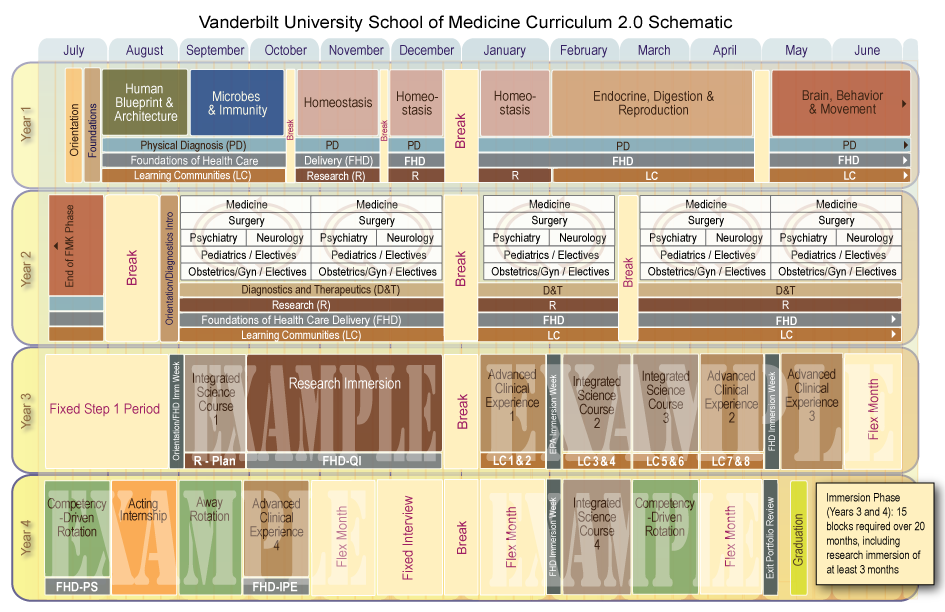
Pre-Clinical Years:
As an Vanderbilt medical student, your first year is based on basic science. 1.5 years are on basic science. Vanderbilt has a core curriculum where you have to learn 25 common presenting patient problems, like abdominal pain and back pain.
How to get into Vanderbilt Medical School – Know Unique Characteristics:
Unique highlights about pre-clinical years:
- Ample time to do research
Special Dual Degree Programs:
Taking Time Off:
Most MD candidates at Vanderbilt Medical School graduate within 4 years. However, because of the shortened pre-clinical curriculum, there is ample time (almost a year) to pursue other academic interests or do a joint degree.
What students are saying about Vanderbilt Medical School
The insider’s view on vanderbilt medical school's clinical years.
Vanderbilt University Medical School Clinical Curriculum :
Clinical Years:
You start clinical rotations September of your second year at Vanderbilt Med School. This is much earlier than almost every other medical school!
Unique highlights about clinical years:
- Immersion in research for at least 3 months – research doesn’t have to mean basic science research or clinical research. You can do research in policy or patient safety!
- During your second year of medical school
- 2 full years to explore your clinical interests
What students are saying about clinical rotations at Vandy Med
Where do students live?
Students mainly live in apartments around Vanderbilt Medical School. Students live in the quaint town of Nashville, Tennessee.
Getting around:
Almost all students have a car, especially for their rotations. It is possible to live walking distance from the Vanderbilt University campus and Medical Center.
Financial Considerations:
- Vanderbilt Medical School Tuition and Fees: ~$59,000
- Average indebtedness of 2019 graduates: ~$170,000
Cracking Med School Admissions Resources
Here are useful Cracking Med School Admissions resources:
- How To Write A Personal Statement For Medical School
- Download Cracking Med School Admission’s FREE AMCAS Activities Workbook
- Premed Timeline: Planning For Medical School Applications
Read our other popular school blogs here:
- How to Get Into Harvard Medical School
- Cracking Duke Medical School Admissions
- Emory Medical School Admissions: School Profile and Application Tips
Ask Us a Question. We help Students just like you Get Into Medical School Each Year!
- Leave Us a Message or Question!
Start typing and press enter to search
Study record managers: refer to the Data Element Definitions if submitting registration or results information.
Search for terms

- Advanced Search
- See Studies by Topic
- See Studies on Map
- How to Search
- How to Use Search Results
- How to Find Results of Studies
- How to Read a Study Record

- Learn About Studies
- Other Sites About Studies
- Glossary of Common Site Terms

- Submit Studies to ClinicalTrials.gov PRS
- Why Should I Register and Submit Results?
- FDAAA 801 and the Final Rule
- How to Apply for a PRS Account
- How to Register Your Study
- How to Edit Your Study Record
- How to Submit Your Results
- Frequently Asked Questions
- Support Materials
- Training Materials

- Selected Publications
- Clinical Alerts and Advisories
- Trends, Charts, and Maps
- Downloading Content for Analysis

- ClinicalTrials.gov Background
- About the Results Database
- History, Policies, and Laws
- ClinicalTrials.gov Modernization
- Media/Press Resources
- Linking to This Site
- Terms and Conditions
- Search Results
- Study Record Detail

RESPONSE: Response to Seladelpar in Subjects With Primary Biliary Cholangitis (PBC) and an Inadequate Control to or an Intolerance to Ursodeoxycholic Acid (UDCA)
- Study Details
- Tabular View
- No Results Posted

- ALP < 1.67× ULN,
- ≥ 15% decrease in ALP, and
- Total bilirubin ≤1.0× ULN
Inclusion Criteria:
- Must have given written informed consent (signed and dated) and any authorizations required by local law
- 18 to 75 years old (inclusive)
- Male or female with a definitive diagnosis of PBC
- UDCA for the past 12 months (stable dose for >3 months prior to screening) OR intolerant to UDCA (last dose of UDCA >3 months prior to screening)
Laboratory parameters measured by the Central Laboratory at screening:
- ALP ≥1.67× ULN
- Aspartate aminotransferase (AST) ≤3× ULN
- ALT ≤3× ULN
- Total bilirubin ≤2× ULN
- Estimated glomerular filtration rate (eGFR) >60 mL/min/1.73 m2 (calculated by the Modification of Diet in Renal Disease study equation)
- International normalized ratio (INR) below 1.1× ULN For subjects on anticoagulation therapy, INR must be maintained in the range required for prophylaxis for their specific disease.
- Platelet count ≥100×103/µL
NOTE: PT, INR, and platelets can be performed locally at the Screening Visit, if deemed necessary by the investigator after consultation with the medical monitor, in cases where centrally read samples are deemed invalid.
- Females of reproductive potential must use at least 1 barrier contraceptive and a second effective birth control method during the study and for at least 90 days after the last dose. Male subjects who are sexually active with female partners of reproductive potential must use barrier contraception, and their female partners must use a second effective birth control method during the study and for at least 90 days after the last dose
Exclusion Criteria:
- Previous exposure to seladelpar (MBX-8025).
- A medical condition other than PBC that, in the investigator's opinion, would preclude full participation in the study (e.g., cancer) or confound its results (e.g., Paget's disease, any active infection).
- Advanced PBC as defined by the Rotterdam criteria (albumin below the lower limit of normal AND total bilirubin above 1.0× ULN)
Presence of clinically important hepatic decompensation, including the following:
- History of liver transplantation, current placement on liver transplantation list, or current Model for End-Stage Liver Disease (MELD) score ≥12. For subjects on anticoagulation medication, evaluation of the baseline INR, in concert with their current dose adjustments of their anticoagulant medication, will be taken into account when calculating the MELD score. This will be done in consultation with the medical monitor.
- Complications of portal hypertension, including known esophageal varices, history of variceal bleeds or related interventions (ege.g., transjugular intrahepatic portosystemic shunt placement), ascites, and hepatic encephalopathy.
- Cirrhosis with complications, including history or presence of spontaneous bacterial peritonitis, hepatocellular carcinoma, or hepatorenal syndrome.
Other chronic liver diseases:
- Current features of AIH as determined by the investigator based on immunoserology, liver biochemistry, or historic confirmed liver histology.
- PSC determined by the presence of diagnostic cholangiographic findings.
- History or clinical evidence of alcoholic liver disease.
- History or clinical evidence of alpha-1-antitrypsin deficiency.
- History of biopsy confirmed NASH.
- History or evidence of Gilbert's syndrome with elevated total bilirubin.
- History or evidence of hemochromatosis.
- Hepatitis B, defined as the presence of hepatitis B surface antigen.
- Hepatitis C, defined as the presence of hepatitis C virus ribonucleic acid.
- History, evidence, or high suspicion of hepatobiliary malignancy based on imaging, screening laboratory values, and/or clinical symptoms.
- Known history of human immunodeficiency virus (HIV) or positive antibody test at screening
- Clinically important alcohol consumption, defined as more than 2 drink units per day (equivalent to 20 g) in women and 3 drink units per day (equivalent to 30 g) in men, or inability to quantify alcohol intake reliably.
- History of malignancy diagnosed or treated, actively or within 2 years, or ongoing evaluation for malignancy; localized treatment of squamous or noninvasive basal cell skin cancers and cervical carcinoma in situ is allowed if appropriately treated prior to screening.
- Treatment with obeticholic acid (OCA) or fibrates (e.g., bezafibrate, fenofibrate, elafibranor, lanifibranor, pemafibrate, saroglitizar) 6 weeks prior to screening
- Treatment with colchicine, methotrexate, azathioprine, or long-term systemic corticosteroids (>2 weeks) during 2 months prior to screening
- Treatment with anti-pruritic drugs (e.g., cholestyramine, naltrexone, rifampicin, sertraline, or any experimental approach) must be on a stable dose within 1 month prior to screening
- Treatment with any other investigational therapy or device within 30 days or within 5 half-lives, whichever is longer, prior to screening
- For females, pregnancy or breastfeeding
- Any other condition(s) that would compromise the safety of the subject or compromise the quality of the clinical study, as judged by the investigator
- Immunosuppressant therapies
- Other medications that effect liver or GI functions, such as absorption of medications or the roux-en-y gastric bypass procedure, may be prohibited and should be discussed with the medical monitor on a case-by-case basis.
- Active COVID-19 infection during Screening.

- For Patients and Families
- For Researchers
- For Study Record Managers
- Customer Support
- Accessibility
- Viewers and Players
- Freedom of Information Act
- HHS Vulnerability Disclosure
- U.S. National Library of Medicine
- U.S. National Institutes of Health
- U.S. Department of Health and Human Services

Admission office: +7 969 2834820 [email protected]
Department of Nursing
MBBS in Russia | MBBS in Moscow | Study Nursing in Russia | Study Nursing in Moscow | Nursing Education in Russia | Nursing Education in Moscow | MBBS Admission in I.M. Sechenov First Moscow State Medical University | MBBS Fee in I.M. Sechenov First Moscow State Medical University | Apply for MBBS Admission in I.M. Sechenov First Moscow State Medical University | How to Get Direct Admission in MBBS in I.M. Sechenov First Moscow State Medical University | Study Nursing in I.M. Sechenov First Moscow State Medical University | Nursing Fee in I.M. Sechenov First Moscow State Medical University | About Nursing
The Department of Nursing was opened in accordance with the order of the Rector and the decision of the Academic Council of the I. Sechenov Moscow Medical Academy (now the First Moscow State Medical University named after I. Sechenov) in February 2004.
The Department of Nursing is the first department of the First Moscow State Medical University named after I.M. Sechenov (Sechenov University), created to provide clinical training for students of the Faculty of Higher Nursing Education and Psychological Social Work (FVSO and SDP) in the direction of training 34.03.01 “Nursing” ( Bachelor’s degree) and the ACT in the specialty 34.02.01 “Nursing”. Since 2011, the department taught the discipline “Nursing” and the practice of obtaining the primary professional skills “Care of the sick” at the medical faculty in the specialty 31.05.01 “General Medicine”. Since 2014, the department also teaches the discipline “First Aid and Nursing” and the practice of obtaining professional skills and professional experience “Sister” in the specialty 31.05.03 “Dentistry”.
The department is located on the basis of the Clinical Center of the First Moscow State Medical University named after I.M. Sechenov (Sechenov University) in UKB number 3 at ul. Rossolimo house 11, page 5, students of the medical faculty, the dental faculty and the faculty of the MPF are engaged in this base. In 2017, the department allocated educational premises at the address: ul. 1st Borodino, house 2.
Since January 31, 2018, the Department of Nursing Year is part of the Medical and Preventive Faculty (MPF).
Scientific work of the department: Complex scientific theme of the department “Psychovegetative correlations in patients with coronary heart disease.”
The department has postgraduate study and a competition in scientific specialties: cardiology and internal diseases.
The department has a scientific student circle, research work is devoted to topical issues of clinical medicine.
Employees of the department conduct advisory and medical work in medical institutions in Moscow.
Admission is open
- Admission process
- Admission requirements
- Application form
- Admission 2021-2022
- Tuition fee
- Apply online
- Visa requirements
- Our representatives
- Russian embassies
- Airport pickup
Admission 2021-2022 is open now. Join to thousands of happy students in First Moscow State Medical University
Admission Office
Admission office for international students.
Adfress: 119991, Moscow, Trubetskaya street, house 8, building 2, Russia
Phone: +7 (969) 283-48-20
Email: [email protected]

Season’s Greetings from Sechenov University
University News | Student life in Russia | Student life in Moscow | News and events in Russia | News and events in Moscow | Study in Russia | Study in Moscow | Education in Russia | Education in Moscow | Study abroad in Russia | International students life abroad | Study abroad in Russia…

Sechenov University Maintained its Position in the 5-100 Project
- Faculties and Departments
- University Leadership
- FMSMU Worldwide
- Clinics of FMSMU
Copyright © 2020-2023 First Moscow State Medical University. All Rights Reserved.
34 Best Medical schools in Moscow, Russia
Updated: February 29, 2024
- Art & Design
- Computer Science
- Engineering
- Environmental Science
- Liberal Arts & Social Sciences
- Mathematics
Below is a list of best universities in Moscow ranked based on their research performance in Medicine. A graph of 922K citations received by 111K academic papers made by 34 universities in Moscow was used to calculate publications' ratings, which then were adjusted for release dates and added to final scores.
We don't distinguish between undergraduate and graduate programs nor do we adjust for current majors offered. You can find information about granted degrees on a university page but always double-check with the university website.
1. Moscow State University
For Medicine

2. Moscow Medical Academy

3. Russian National Research Medical University

4. RUDN University

5. National Research University Higher School of Economics

6. Moscow Institute of Physics and Technology

7. National Research Nuclear University MEPI

8. Bauman Moscow State Technical University

9. N.R.U. Moscow Power Engineering Institute

10. Russian Presidential Academy of National Economy and Public Administration

11. Moscow State Pedagogical University

12. National University of Science and Technology "MISIS"

13. Mendeleev University of Chemical Technology of Russia

14. Finance Academy under the Government of the Russian Federation

15. Plekhanov Russian University of Economics

16. Moscow Aviation Institute

17. Moscow State Institute of International Relations

18. Russian State Social University

19. Russian State Agricultural University

20. National Research University of Electronic Technology

21. Russian State University of Oil and Gas
22. new economic school.

23. Russian State University for the Humanities

24. Moscow State Technological University "Stankin"

25. State University of Management

26. Moscow State University of Railway Engineering

27. Moscow Polytech

28. Moscow Technical University - MIREA

29. Moscow State Linguistic University

30. Moscow State Mining University
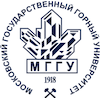
31. Moscow International University

32. Pushkin State Russian Language Institute
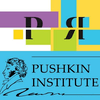
33. Russian State Geological Prospecting University
34. moscow state technical university of civil aviation.
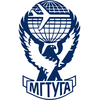
Universities for Medicine near Moscow
Medicine subfields in moscow.

IMAGES
COMMENTS
20,684. Mar 21, 2023. #1. 2023-2024 Vanderbilt Secondary Essay Prompts (their site says ~ 2/3 of applicants will get a secondary) Link: Vanderbilt Admissions Process. Link: Application tracker. 1. Please reflect on the upbringing, background, and experiences in your life that have shaped who you are as a person and will help define the person ...
The secondary application requires three essay responses. Vanderbilt Medical School secondary application essay questions 2022-23. Vanderbilt secondary essay #1. If applicable, please describe how the COVID-19 pandemic affected your pathway to medical school. You may discuss any academic, personal, financial, or professional alterations to your ...
Vanderbilt University School of Medicine participates in the American Medical College Application Service. All application materials may be obtained through AMCAS. ... Secondary Application Essay Prompts. We understand the ongoing COVID-19 pandemic has resulted in a particularly stressful time for many applicants. To allow applicants more time ...
Vanderbilt University School of Medicine Secondary Application Essay Prompts: 2016 - 2017. Write a brief autobiography. As completely and precisely as possible, give a picture of yourself, your family, and events you consider important to you. In doing so, identify the values that are of greatest importance to you.
Vanderbilt Medical School Secondary Essays. Here are the most recent Vanderbilt medical school secondary application essay prompts and how to answer them. Prompt #1 "Please reflect on the upbringing, background, and experiences in your life that have shaped who you are as a person and will help define the person you want to be in the future ...
To allow applicants more time for reflection when completing our secondary application, we are publishing our secondary application essay prompts in advance. Please note that the MSTP program may have additional essay prompts for you to respond to. 1.Please reflect on the upbringing, background, and experiences in your life that have shaped who ...
Below are the secondary essay prompts for the Vanderbilt University School of Medicine. 2017 - 2018 The Vanderbilt University School of Medicine strives to ensure that its students become respectful physicians who embrace all dimensions of caring for the whole person.
Vanderbilt University Secondary Essay Prompts (If you have updated prompts, please submit them at updatesecondaries.com) Prompts have been updated June 2023. (Older essays, if available are below) Prompts: If applicable, please describe how the COVID-19 pandemic affected your pathway to medical school.
Here are the secondary prompts for Vanderbilt University School of Medicine. 2023-2024. 1. Please reflect on the upbringing, background, and experiences in your life that have shaped who you are as a person and will help define the person you want to be in the future. In other words, what makes you who you are? (800 words)
Medical school admissions is a competitive world. For the entering med school class of 2017, there were over 51,000 applicants for just 21,338 spots. Since many schools review applications on a rolling basis (that is they review the applications as they are received), there is definitely truth to the old adage "The early bird gets the worm."
Part 3: The medical school adversity essay Example adversity essay prompts. Example 1: "Share with us a difficult or challenging situation you have encountered and how you dealt with it.In your response, identify both the coping skills you called upon to resolve the dilemma, and the support person(s) from whom you sought advice." (University of Chicago Pritzker School of Medicine)
Completing the AMCAS Application. The American Medical College Application Service is the common application you'll use to apply to most U.S. medical schools. This means you only have to submit your transcripts, test scores, and personal statement once.
Applications. The Vanderbilt School of Medicine secondary application is very long. Not only are there several essays that are tough to answer because they require a lot of time and reflection, but also the essays are long in length. We encourage medical school applicants to answer the optional essays. In the 2021 - 2022 cycle, Vanderbilt ...
Access our complete list of all Secondary Essay Prompts from . Vanderbilt University School of Medicine in Nashville, TN for the 2018-2023 admissions cycles. 2023 2022 2021 2020 2019 2018 Copy all prompts
Zucker SOM at Hofstra/Northwell 2022-23 Secondary Application Essay Tips. For one-on-one guidance on your med school secondaries, check out our Medical School Essay Services. Create a secondary essay that answers that school's specific questions, showcases your talents, and tells your story in a way that shows your fit for the program.
Arizona (Suggested reading: Medical Schools in Arizona: How to Get In) A.T. Still University School of Osteopathic Medicine. 2022-2023. ATSU-SOMA's osteopathic medical education model includes training at one of our partner Community Health Center (CHC) sites.
The following is a comprehensive list of medical schools and their medical school secondary prompts for the most recent application cycle. secondary essays You'll find a list of medical schools ( MD and DO) organized by state along with the medical school secondary essay prompts they are using for this cycle. Click on each school name to ...
Information from the National Library of Medicine. Choosing to participate in a study is an important personal decision. Talk with your doctor and family members or friends about deciding to join a study. To learn more about this study, you or your doctor may contact the study research staff using the contacts provided below.
In 2017, the department allocated educational premises at the address: ul. 1st Borodino, house 2. Since January 31, 2018, the Department of Nursing Year is part of the Medical and Preventive Faculty (MPF). Scientific work of the department: Complex scientific theme of the department "Psychovegetative correlations in patients with coronary ...
Moscow 34. Saint Petersburg 17. Omsk 6. Tomsk 6. Ranking methodology. Below is the list of 34 best universities for Medicine in Moscow, Russia ranked based on their research performance: a graph of 922K citations received by 111K academic papers made by these universities was used to calculate ratings and create the top.
The university incorporates 69 educational venues, 22 hospitals with over 3,500 beds, seven research institutes and five RAS R&D units, more than 30 laboratories, the largest medical library in Europe, a botanical garden, and many other facilities that ensure academic excellence, resulting in powerful research and innovative advances along with cutting-edge medical care practices.